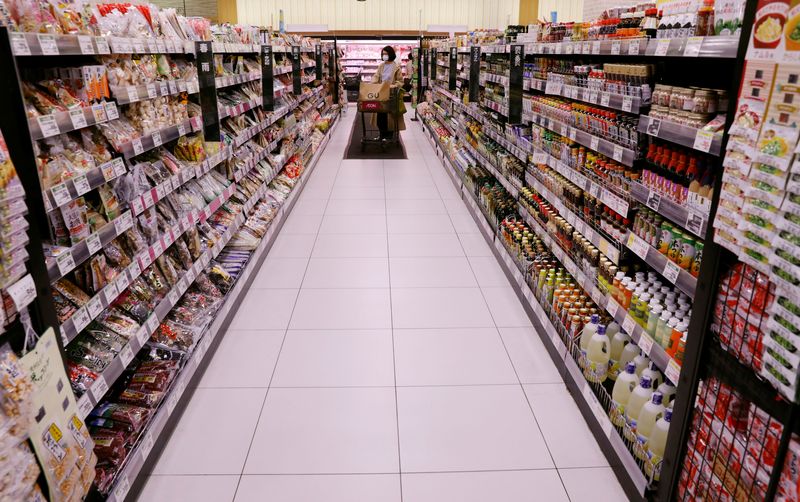By Leika Kihara
TOKYO (Reuters) -Japan's wholesale prices rose 9.0% in August from the previous year, matching the annual pace of growth in July, data showed on Tuesday, signalling that persistently high raw material costs continued to squeeze corporate margins.
The rise in the corporate goods price index (CGPI), which measures the price companies charge each other for their goods and services, was largely in line with a median market forecast for a 8.9% increase, Bank of Japan (BOJ) data showed.
The index, at 115.1, extended a record high for the fifth straight month in a sign Japan continues to feel the impact of rising global raw material prices.
While recent falls in crude oil and global commodity costs took some pressure off fuel and scrap metals prices, prices rose for a broad range of items that more directly affect retailers such as utility bills and electronic devices, the data showed.
Reflecting easing input pressure, however, wholesale prices rose just 0.2% in August from the previous month, slower than a revised 0.7% month-on-month increase marked in July.
The yen-based import price index rose 42.5% in August from a year earlier, after a revised 49.1% increase in July, the data showed.
A weak yen has inflated the cost of importing already rising prices of raw material goods, weighing on corporate profits and forcing a growing number of firms to hike prices.
Japan's core consumer inflation hit 2.4% in July to mark the fastest annual pace in 7-1/2 years, adding to the costs of living for households yet to see much wage gains.

But with inflation still modest compared with many other advanced nations and the economy fragile, the BOJ has pledged to keep interest rates ultra-low and remain an outlier in a global wave of monetary policy tightening.
Japan's economy expanded an annualised 2.2% in April-June, staging a slower-than-expected rebound from a COVID-induced slump as a resurgence in infections, supply constraints and rising raw material costs weigh on consumption and output.
